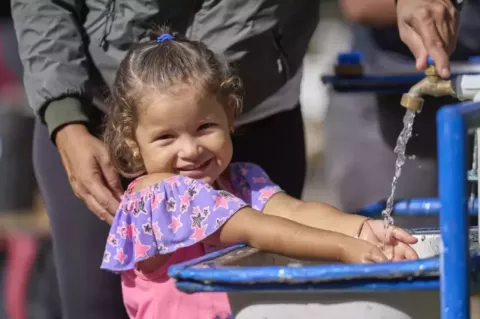Children are among the first victims of a new Ebola outbreak in Democratic Republic of the Congo
Children represent an unusually high proportion of people affected by the outbreak, and the impact is not limited to just those who have been infected.
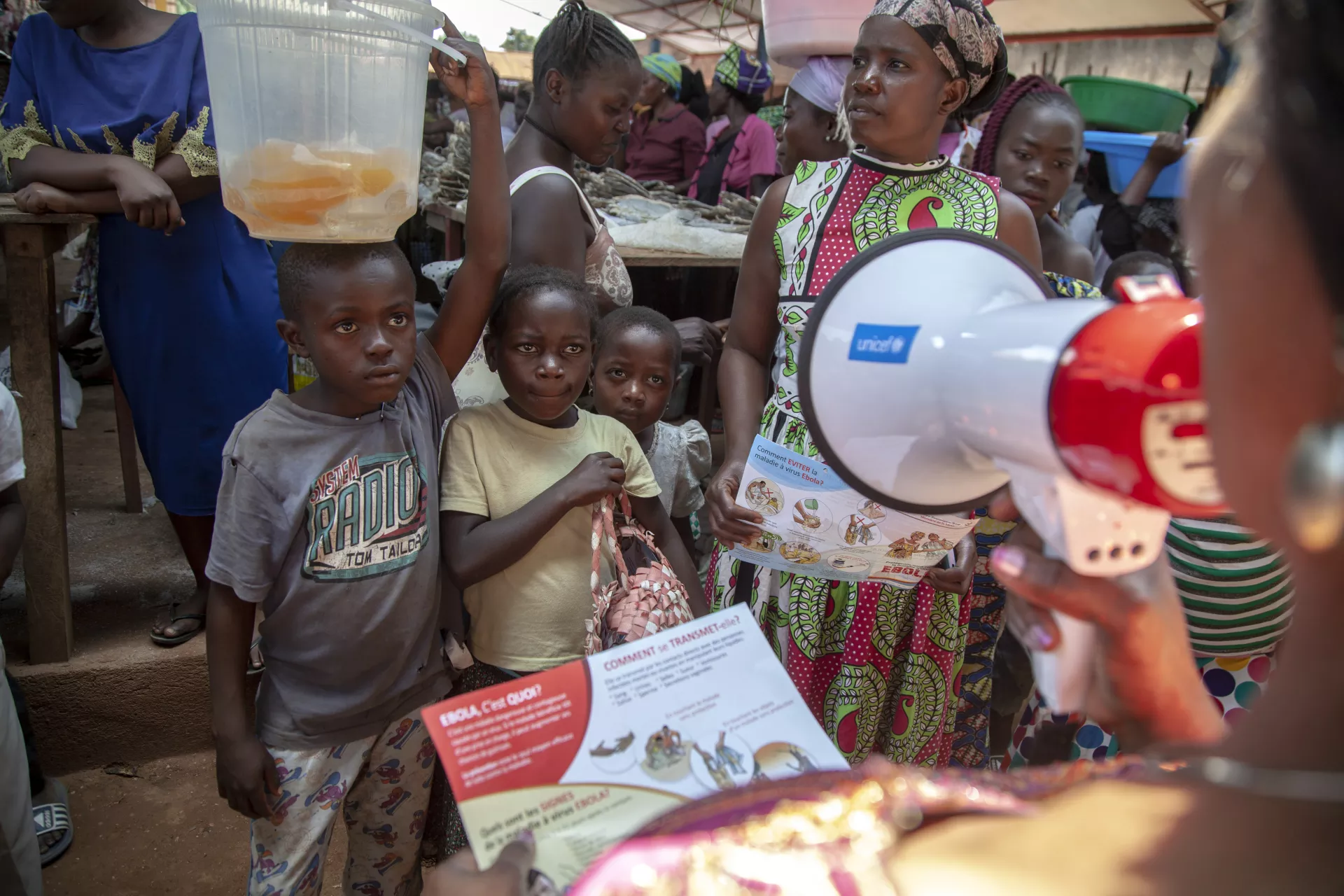
On 1 August, the Government of the Democratic Republic of the Congo announced a new Ebola virus outbreak in the North Kivu region of the country. As of 16 September, there have been over 140 reported cases. Children represent an unusually high proportion of people affected by the outbreak – and not just those who have contracted the virus. Many children are coping with the illness or death of their parents and loved ones. Others have lost numerous family members and urgently need support. UNICEF is playing a crucial role in the Ebola response, particularly through community engagement and psychosocial support, as well as providing nutrition treatment and safe water.
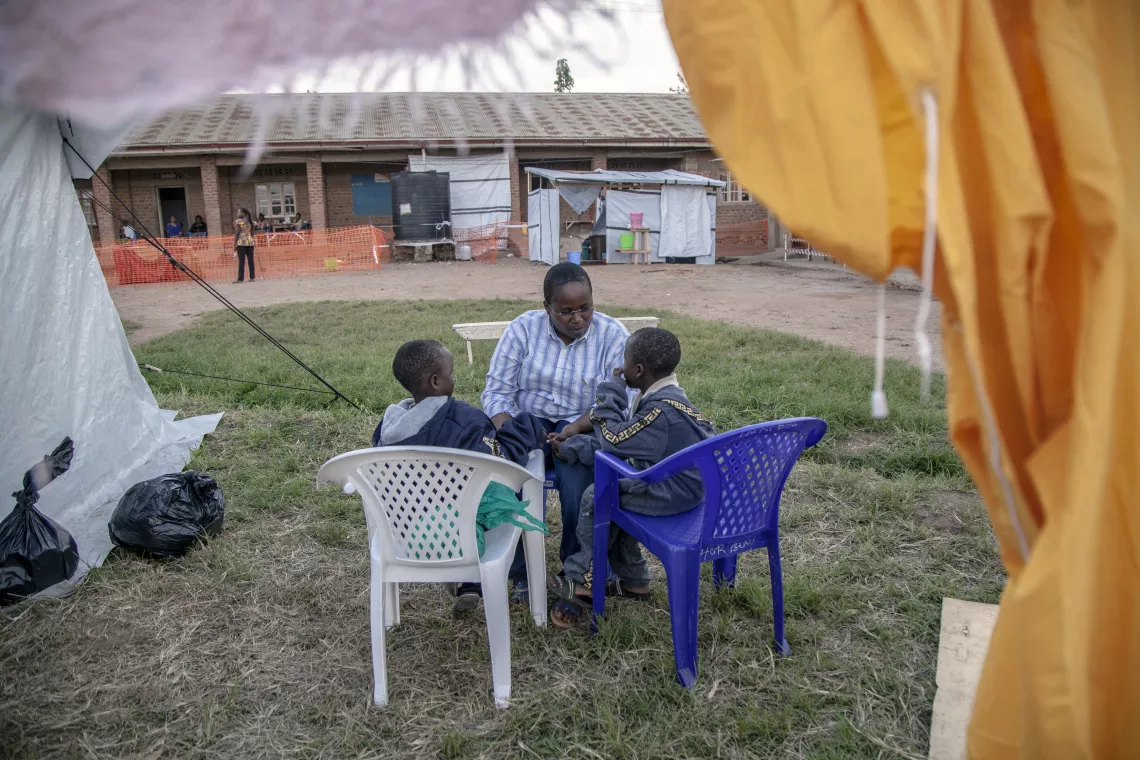
(Above) Sylvie Waridi chats with eight-year-old twin brothers who have just been released from the Ebola treatment centre in Beni. Sylvie is among UNICEF-trained psychosocial workers providing care and support for children who have been affected by the Ebola virus. “I talk to them, comfort them and listen to their worries,” she says.
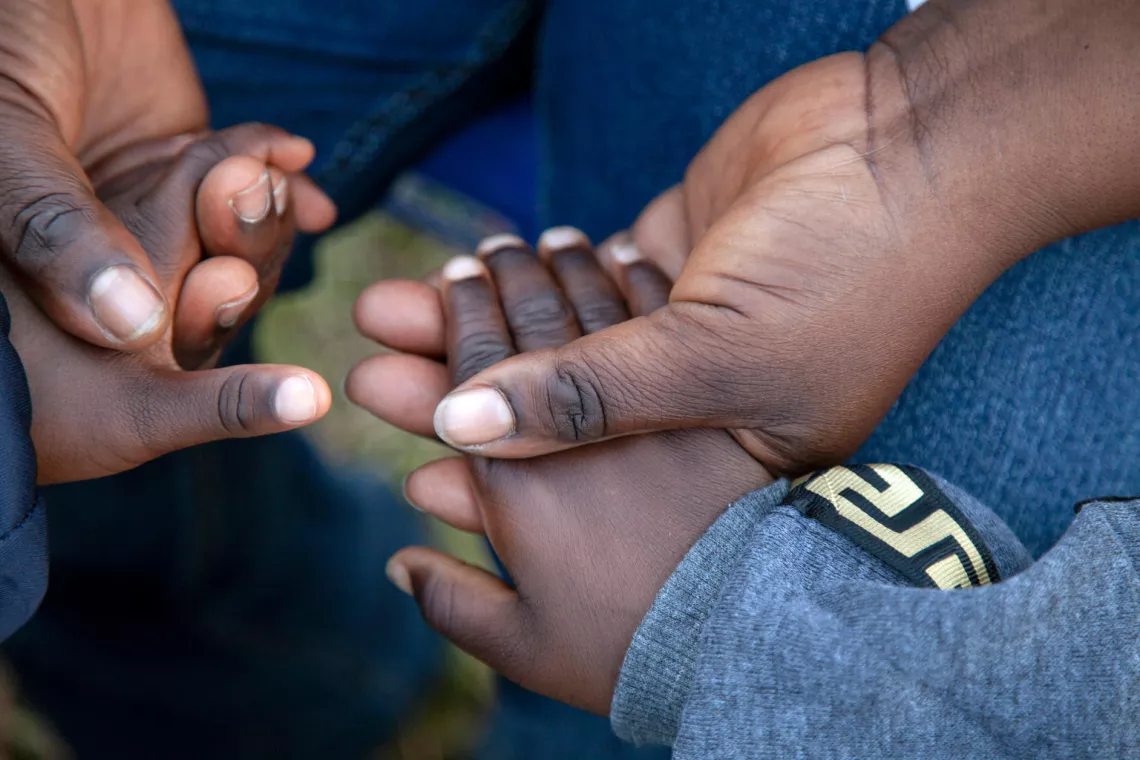
“Every time we discharge a child from the centre we are filled with joy,” Sylvie says, holding hands with the twins. After six days under observation and two negative tests, the brothers were declared free of the Ebola virus. But the boys may still face stigma in their community. She’ll visit their neighbourhood regularly to make sure that they are being well-received.
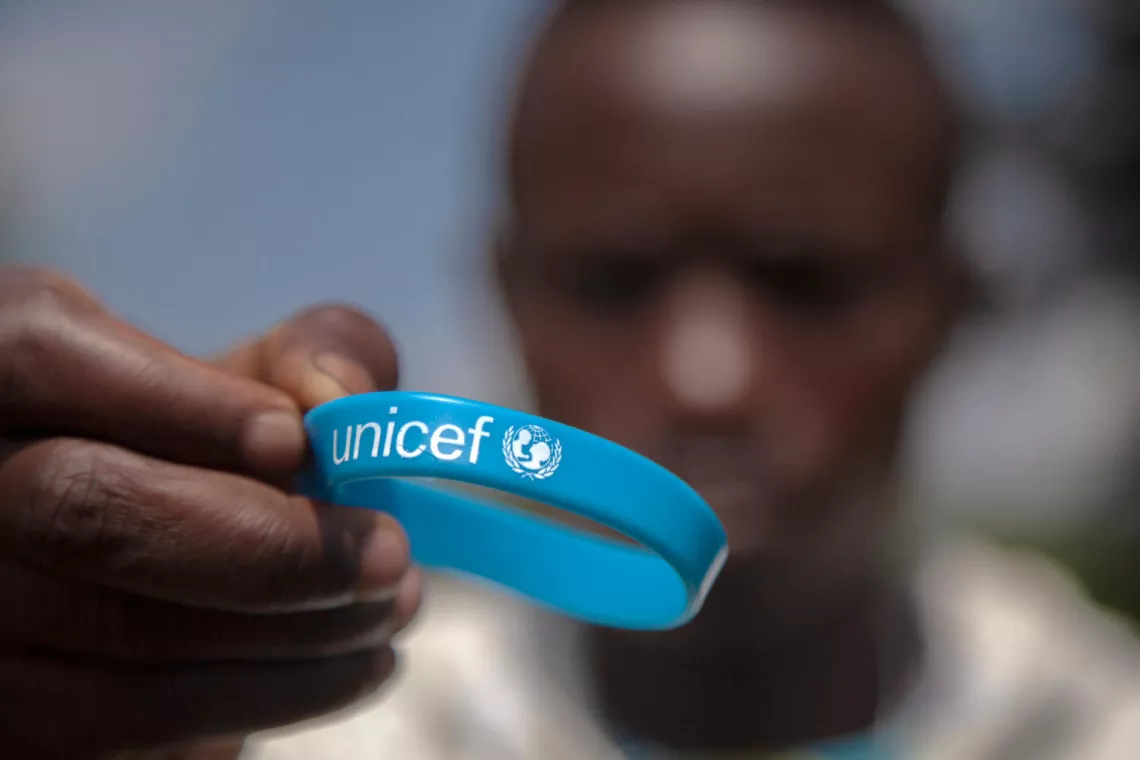
In Mangina, Dieudonné [NAME CHANGED], 13, lost his mom and almost every one else he loved and depended on to the highly contagious virus. “There were eight of them and they are all dead,” Dieudonné says. His big sister is now in the Ebola treatment centre, and he doesn’t know if she’ll survive. “I have to continue to live but I don’t know how I’ll make it.”
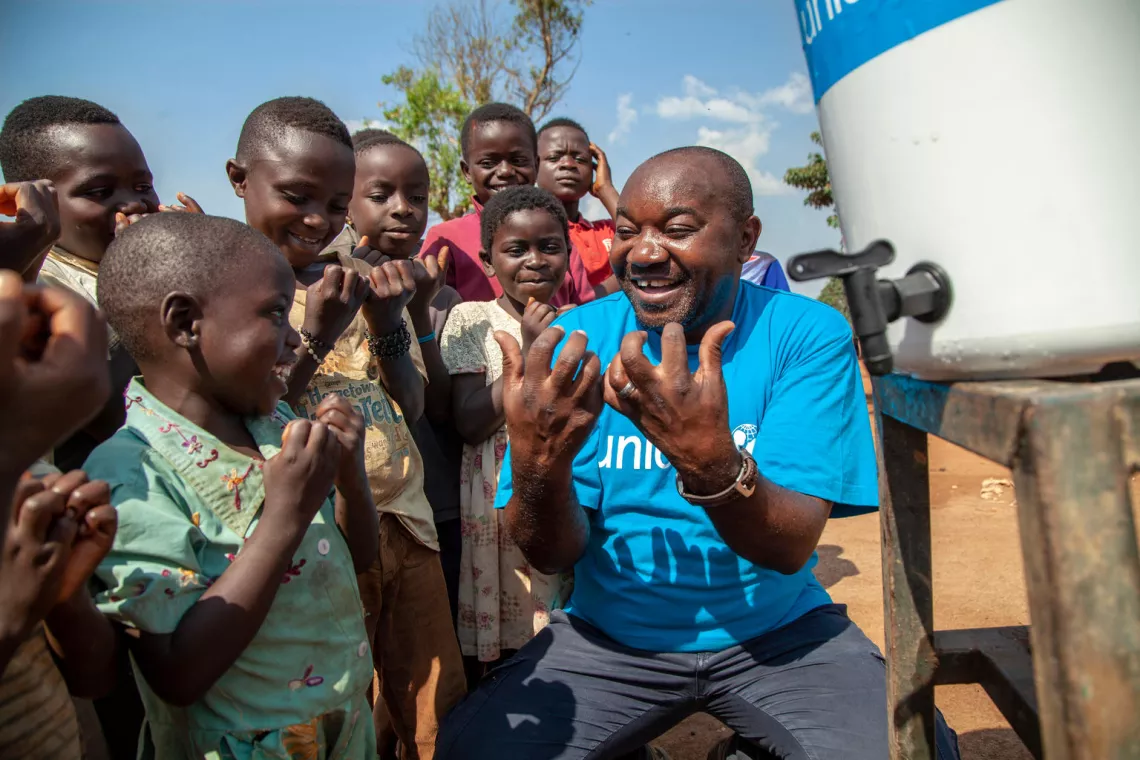
Raising community awareness is instrumental in preventing the spread of Ebola. Near Mangina, UNICEF WASH Officer Jean Marie Bofio shows children how to wash their hands correctly to avoid contracting the virus. “Water and sanitation are critical in this fight because hygiene is the best way to prevent the spread of this deadly disease,” Jean Marie says.
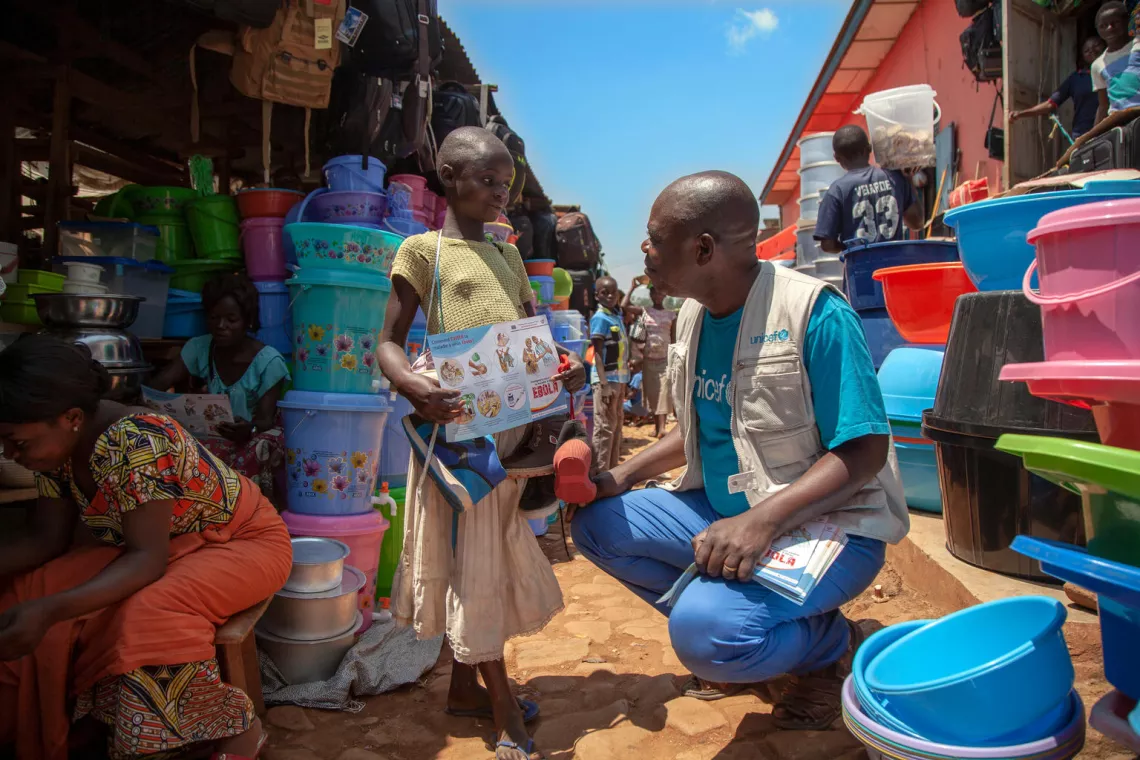
UNICEF Ebola Outreach Officer Jean-Pierre Masuku talks to a girl in Beni about Ebola prevention. The active involvement of affected communities is also key to stopping the spread of the disease. UNICEF has already reached 30,000 people with vital prevention messages. “Each of them is a partner in the fight against the Ebola virus,” Jean-Pierre says.
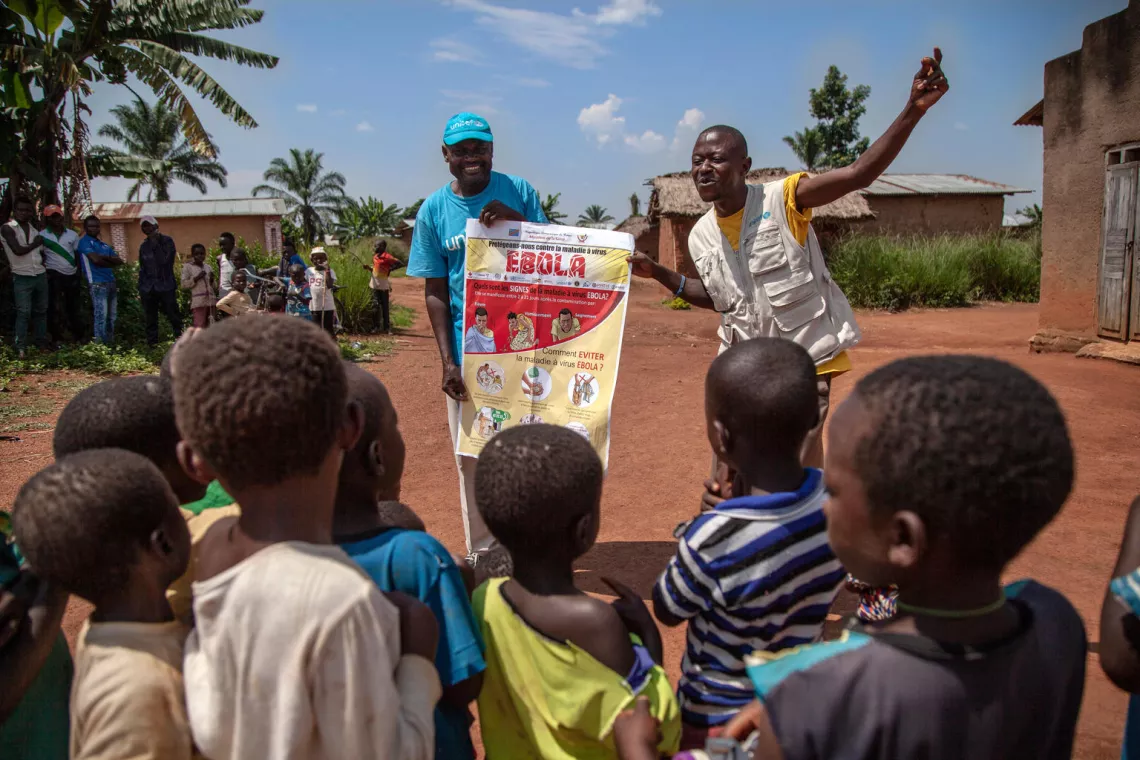
Children near Mangina learn about the importance of Ebola prevention from UNICEF Communication for Development Officers. Since the outbreak began, nearly 2.5 million people in affected health zones have been reached with Ebola prevention and advocacy messages. UNICEF continues to put children at the heart of its response to the outbreak.

